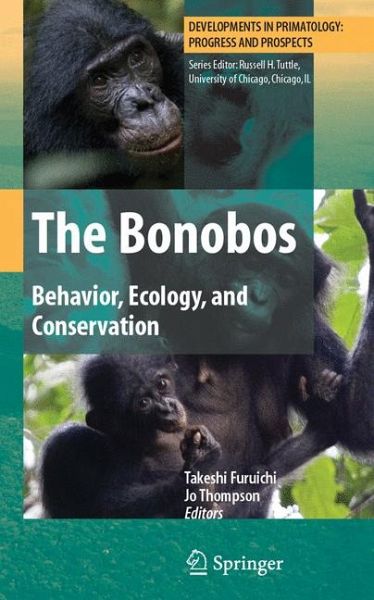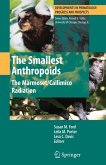The first section of the book presents research progress in the study of behavior of captive bonobos. These behavioral studies make important strides in our understanding of bonobo social relationships, agonistic dominance, social play, and signaling. The outcomes concerning high social status of females and flexible and complicated social communication may shed light on the study of evolution of both bonobos and humans.
The second section deals with ecological studies that have been carried out since the post- conflict resumption of field research in Democratic Republic of Congo. Methodologies that have been improved over recent years in the study of the other great apes have now been applied to the study of bonobos, which enables comprehensive comparison for understanding hominids'' adaptation to the African tropical forest. Furthermore, differing and newly -developed census methods have been employed to reveal the current status of bonobos in Africa's largest forested protected area, the Salonga National Park.
The text's final section centers on the most urgent conservation priorities and reviews local and global aspects of the factors threatening the wild bonobo population. The role of humans in the future of bonobo conservation is examined. Further, the first ever large-scale and small-scale regionalsurveys are presented, as well as how the world's only sanctuary for orphaned bonobos can respond to offer estimatesthe consequences of population density and distribution through reliable quantitative data. These studies provide compelling results and a solid population assessment.the live animal trade. Encouraging reports detail the presence and abundance of bonobos existing across their historic range. These contributions not only illuminate the current status of the bonobobonobos but allow for critically designing the next steps for the continuation of their future.
About the Editors:
Dr. Takeshi Furuichi is Professor in the Faculty of International Studies of Meiji-Gakuin University, Japan. He has carried out ecological and behavioral studies of bonobos, chimpanzees, and gorillas all across Africa for more than 20 years, in order to reveal the evolutionary process of hominids.
Dr. Jo Thompson is the Director of the Lukuru Wildlife Research Project in the Democratic Republic of Congo. She has maintained her field work for more than 16 years focused on bonobo ecology and conservation in alliance with the local people.
Dieser Download kann aus rechtlichen Gründen nur mit Rechnungsadresse in A, B, BG, CY, CZ, D, DK, EW, E, FIN, F, GR, HR, H, IRL, I, LT, L, LR, M, NL, PL, P, R, S, SLO, SK ausgeliefert werden.
"This volume ... focuses on the lesser-known species of chimpanzee, Pan paniscus, commonly known as the bonobo or the pygmy chimpanzee. ... provides a comprehensive, current perspective on the behavior and ecology of both captive and wild bonobos, as well as the major threats facing their survival. ... This work is thus a welcome and important contribution to the primate literature. Summing Up: Highly recommended. Upper-division undergraduates through researchers/faculty." (L. Swedell, Choice, Vol. 46 (2), October, 2008)
"Highlights of this book are the number of Congolese scientists and researchers ... recognise that many people interested in the results might not have English as their first (second or even third) language. ... The papers are excellent and interesting ... . to those working with counting apes elsewhere. ... All in all, the book has vital data, good use of analytical techniques and novel discussions of the conservation prospects of the 'last chimpanzee', all of which make it well worth owning ... ." (P. C. Lee, Primate Eye, August, 2009)
"The Bonobos, edited by Takeshi Furuichi and Jo Thompson, consists of information presented in two symposia held at the 2006 International Primatological Society Congress in Uganda. ... The main thrust of the book is the updating of field studies and new data on conservation. ... The Bonobos is a welcome update on the state of bonobo research, particularly in the post-war environment of Central Congo." (Randall L. Susman, Primates, Vol. 50, 2009)









